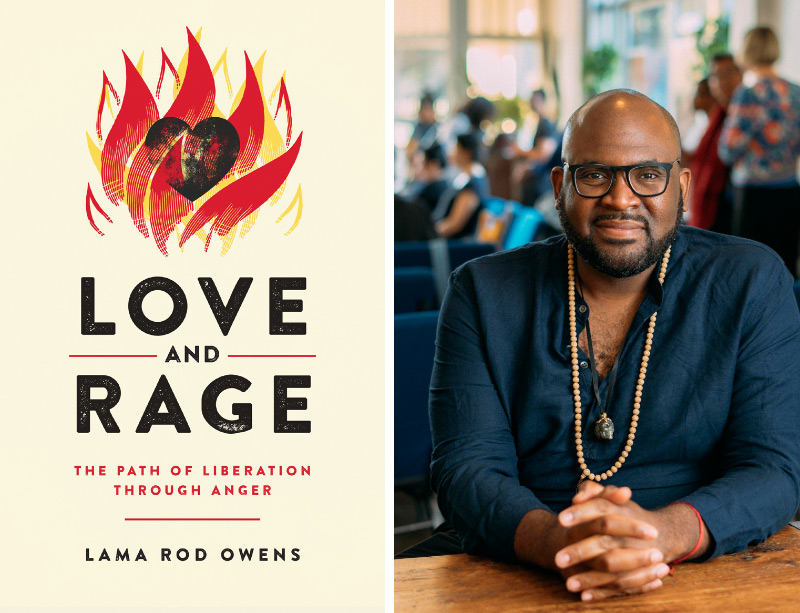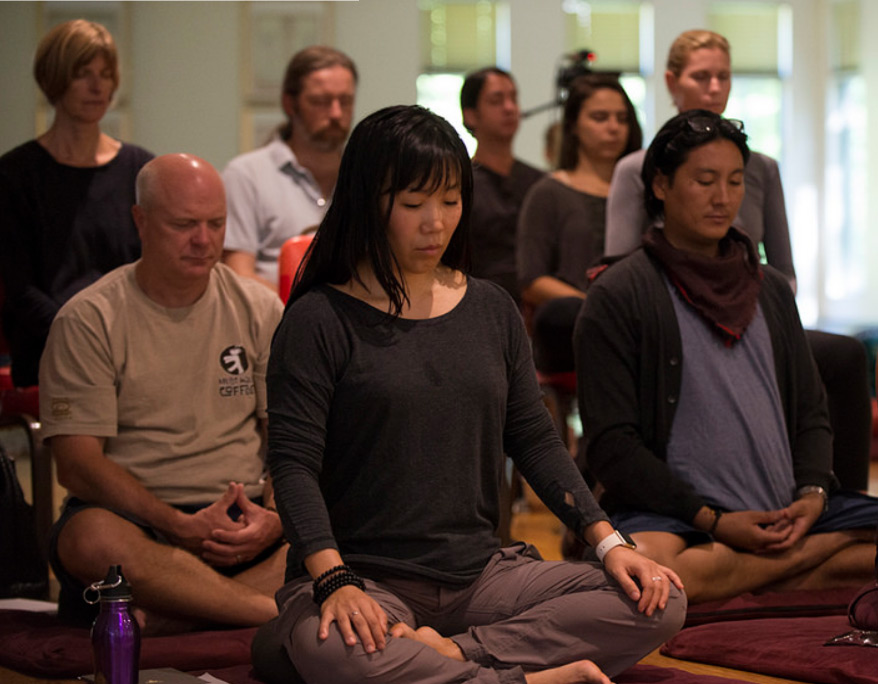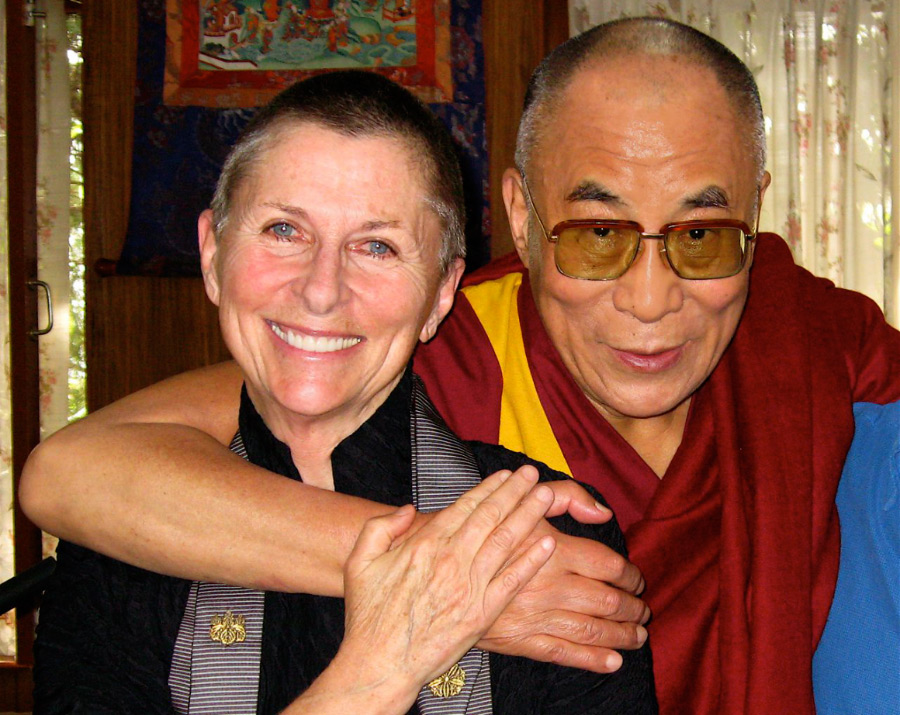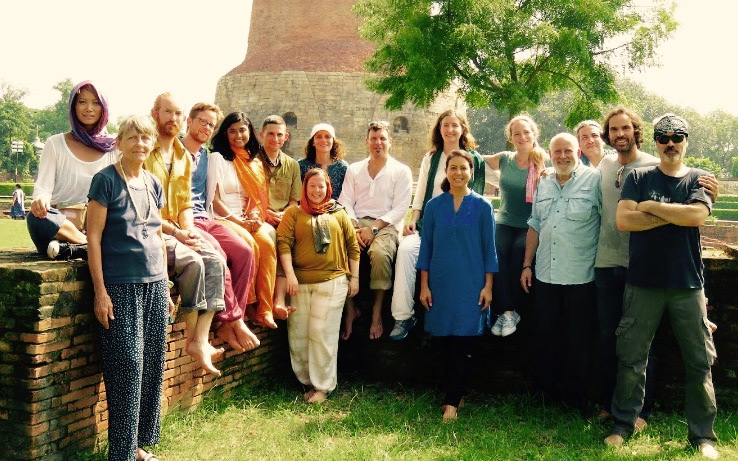Presented by Nalanda Institute with an excerpt by Lama Rod Owens

Lama Rod Owens, dharma teacher, meditation and mindfulness instructor (and recent visiting faculty in our Contemplative Psychotherapy Program!) explores with grace and candor the power and uses of anger. In his just-released book, Love and Rage: The Path of Liberation Through Anger he shares his personal journey with rage—how, at a young age, he internalized the belief that his anger was dangerous.
In a recent press release, Lama Rod has shared an adapted excerpt entitled “Blackness and Anger” from his book which we would like to share with you. Read on….
by Mindy Newman
If someone had suggested to me a few years ago that it would be a good idea for me to publicly share my experience with meditation by writing about it in a blog post, I frankly would have thought that they were insane and considered politely urging them to seek mental health treatment. My stream of consciousness probably would have gone something like: “I am a terrible meditator. I don’t have any discipline. My mind is an absolute mess. I don’t even like meditating. What is wrong with this person — isn’t is obvious that I am awful at this?” I really believed there was something wrong with me — a Buddhist practitioner who hated meditation, and I felt tremendous shame about it.

Students of the Contemplative Psychotherapy Program practicing meditation while on retreat at Menla Mountain House. Photo by Darren Ornitz.
For years, I sat in meditation classes and imagined that everyone else on the cushion was having some kind of better experience. I’d heard enough instructions from different teachers about the ubiquity of the “monkey mind” to accept that distraction was normal, but surely my amount of distraction was too much — much more than normal — and definitely more than anyone else’s.
by Roshi Joan Halifax

For much of my life I have worked with caregivers in the most challenging of clinical settings—end-of-life care—as well as with activists on the front lines of pressing struggles in social justice and social action. In the course of this work, I have witnessed firsthand the insidious impact of empathic distress in caregivers and activists.
by Miles Neale

At the conclusion of teaching the second iteration of Nalanda Institute’s four-year Sustainable Happiness Program, I lead a group weekend retreat and graduation ceremony at Ananda Ashram. All of the graduates expressed a hunger for more learning and adventure. In short-order, we collectively conceived of a group pilgrimage to the sacred sites of Buddhist India. In October 2016, I led sixteen students to India, along a route that is sometimes referred to as “In The Footsteps of the Buddha” as it traces the power spots associated with the major milestones of the Buddha’s own life. I called our odyssey the “Hero’s Pilgrimage,” based on the Altruistic Hero or Bodhisattva idea, the Buddhist archetype of the individual who strives to awaken others, and Joseph Campbell’s monomyth, the “Hero’s Journey,” specifically its narrative arc of leaving home, slaying demons, finding treasure, and return home with the elixir for others.
